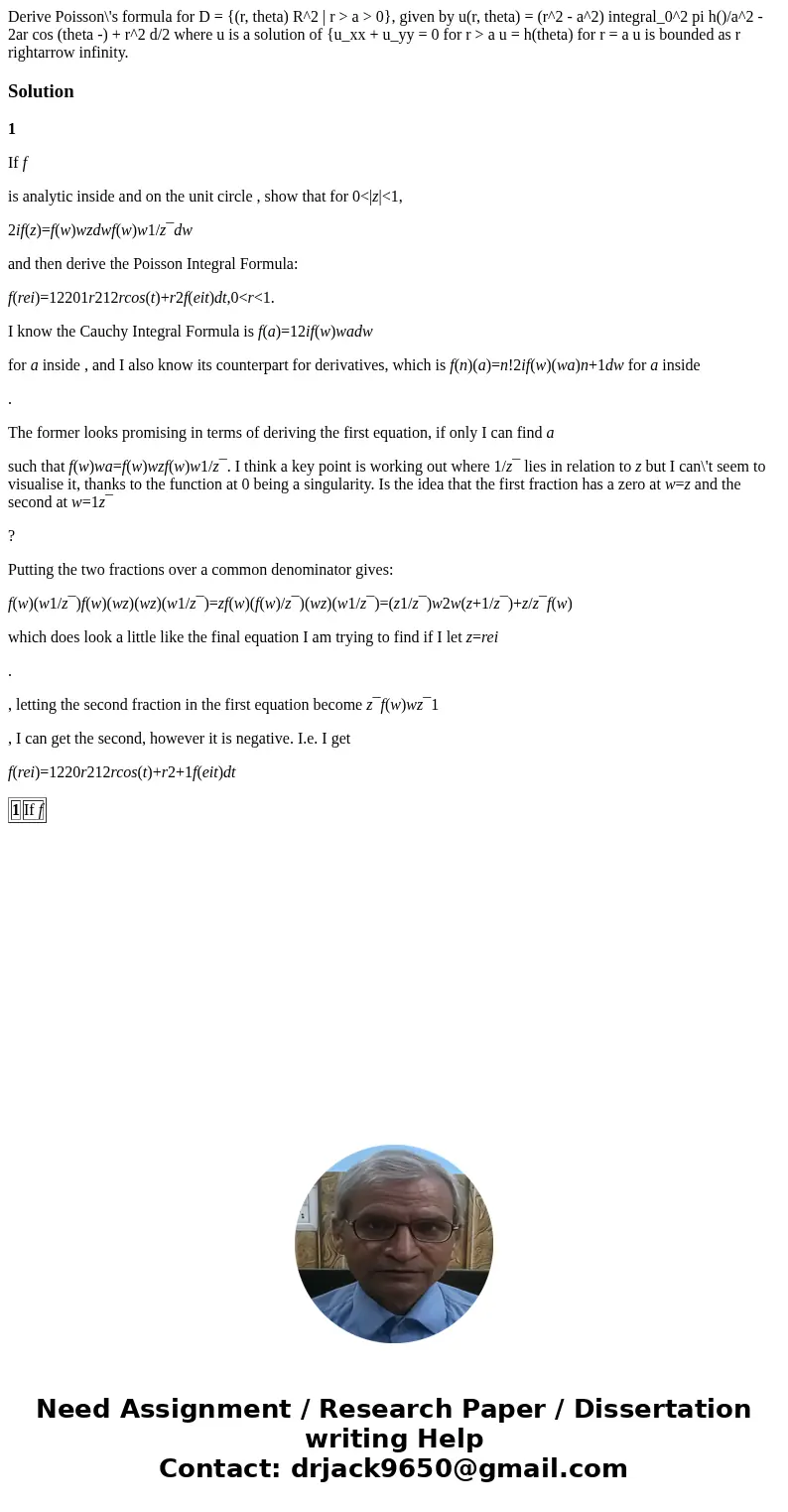Derive Poissons formula for D r theta R2 r a 0 given by
Solution
1
If f
is analytic inside and on the unit circle , show that for 0<|z|<1,
2if(z)=f(w)wzdwf(w)w1/z¯dw
and then derive the Poisson Integral Formula:
f(rei)=12201r212rcos(t)+r2f(eit)dt,0<r<1.
I know the Cauchy Integral Formula is f(a)=12if(w)wadw
for a inside , and I also know its counterpart for derivatives, which is f(n)(a)=n!2if(w)(wa)n+1dw for a inside
.
The former looks promising in terms of deriving the first equation, if only I can find a
such that f(w)wa=f(w)wzf(w)w1/z¯. I think a key point is working out where 1/z¯ lies in relation to z but I can\'t seem to visualise it, thanks to the function at 0 being a singularity. Is the idea that the first fraction has a zero at w=z and the second at w=1z¯
?
Putting the two fractions over a common denominator gives:
f(w)(w1/z¯)f(w)(wz)(wz)(w1/z¯)=zf(w)(f(w)/z¯)(wz)(w1/z¯)=(z1/z¯)w2w(z+1/z¯)+z/z¯f(w)
which does look a little like the final equation I am trying to find if I let z=rei
.
, letting the second fraction in the first equation become z¯f(w)wz¯1
, I can get the second, however it is negative. I.e. I get
f(rei)=1220r212rcos(t)+r2+1f(eit)dt
| 1 | If f |

 Homework Sourse
Homework Sourse